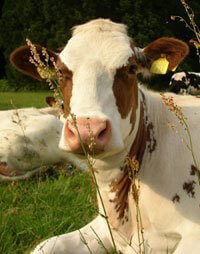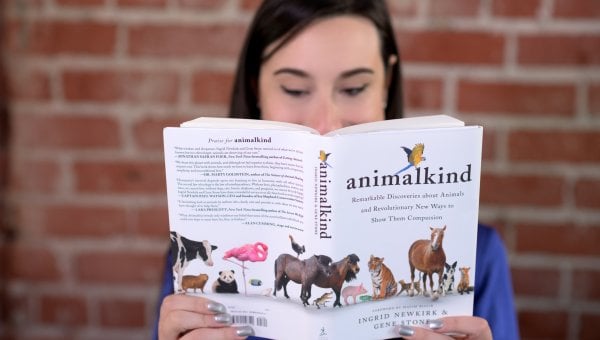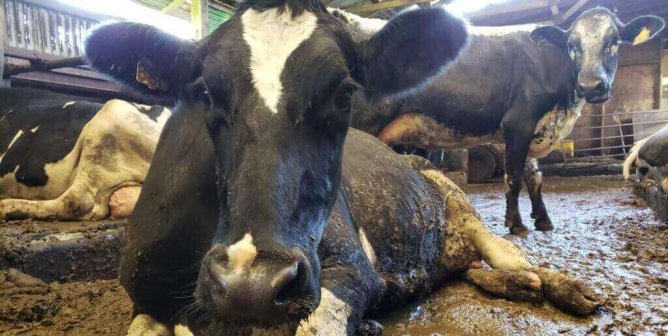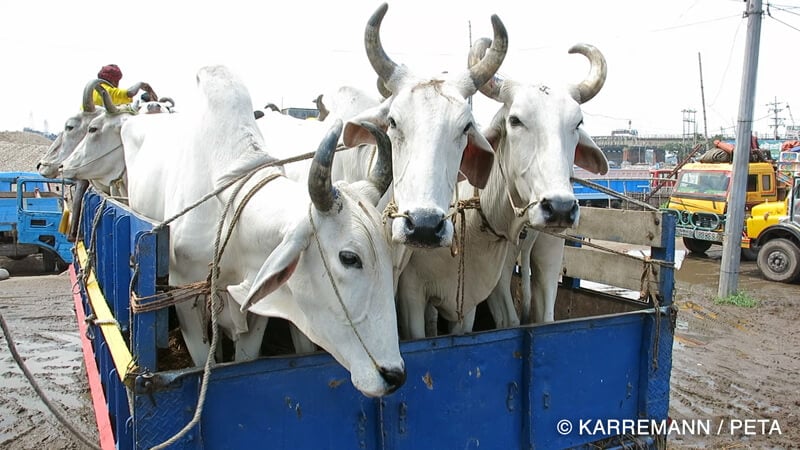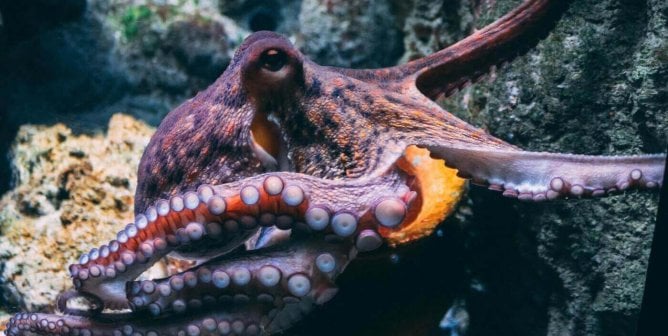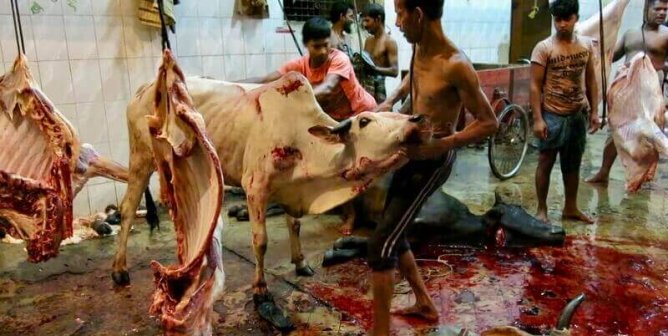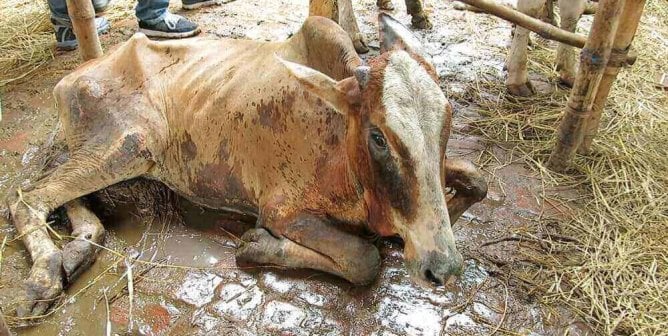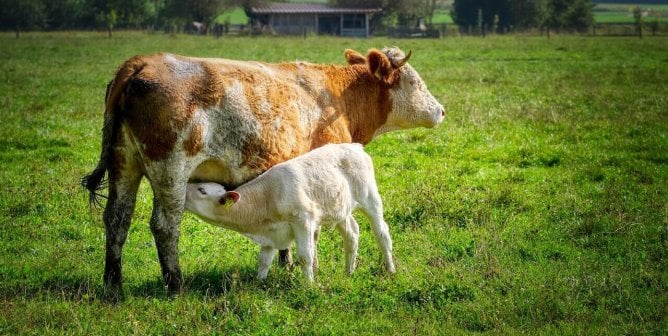The Hidden Lives of Cows
Cows are as diverse as cats, dogs, and humans: Some are very quick learners, while others are a little slower. Some are bold and adventurous, while others are shy and timid. Some are friendly and considerate, while others are bossy and devious.
According to research, cows are generally quite intelligent animals who can remember things for a long time. Animal behaviorists have found that they interact in socially complex ways, developing friendships over time and sometimes holding grudges against other cows who treat them badly.
These gentle giants mourn the deaths of and even separation from those they love, sometimes shedding tears over their loss. The mother/calf bond is particularly strong, and there are countless reports of mother cows who continue to call and search frantically for their babies after the calves have been taken away and sold to veal or beef farms. Read more inspiring stories and learn fascinating facts about cows and other animals in the bestselling book Animalkind.
Brainy Bovines
Research has shown that cows clearly understand cause-and-effect relationships—a sure sign of advanced cognitive abilities. For example, they can learn how to push a lever to operate a drinking fountain when they’re thirsty or to press a button with their heads to release grain when they’re hungry. Researchers have found that cows not only can figure out problems but also enjoy the intellectual challenge and get excited when they find a solution, just as humans do.
Pecking Orders Aren’t Just for Chickens
A herd of cows is very much like a pack of wolves, with alpha animals and complex social dynamics. Each animal can recognize 50 or more members of the herd, and relationships are very important to cows. They consistently choose leaders who have good social skills and are intelligent, inquisitive, self-confident, and experienced—while pushiness, selfishness, a large size, and brawniness are not recognized as suitable leadership qualities.
Raising cows in unnatural conditions, such as on crowded feedlots, causes them distress because it upsets their social hierarchy. Researchers note that cows who are kept in groups of more than 200 on commercial feedlots become stressed and constantly fight for dominance. (Feedlots in the U.S. hold thousands of cows at a time.)
Cows Don’t Want to Die
Like all animals, cows value their lives and don’t want to die. Stories abound of those who have gone to extraordinary lengths to fight for their lives.
A cow in Virginia named Idabelle was about to be loaded onto a freighter bound for Venezuela when she turned around, ran back down the gangplank, and leaped into the river. Even though she was pregnant (or perhaps because she was pregnant), she managed to swim all the way across the river, eluding capture for several days. She was rescued by PETA and sent to a sanctuary.
When workers at a slaughterhouse in Massachusetts went on break, Emily the cow made a break for it. She took a tremendous leap over a 5-foot-tall gate and escaped into the woods, surviving the harsh New England winter weather with the aid of concerned local residents who began watching for her and leaving out hay for her to eat.
When she was caught several weeks later by the owners of a nearby sanctuary, the public demanded that the slaughterhouse allow the sanctuary to buy her for $1. Emily lived out the rest of her life in peace in Massachusetts. Her life is a testament to the fact that eating meat means eating animals who don’t want to die.

